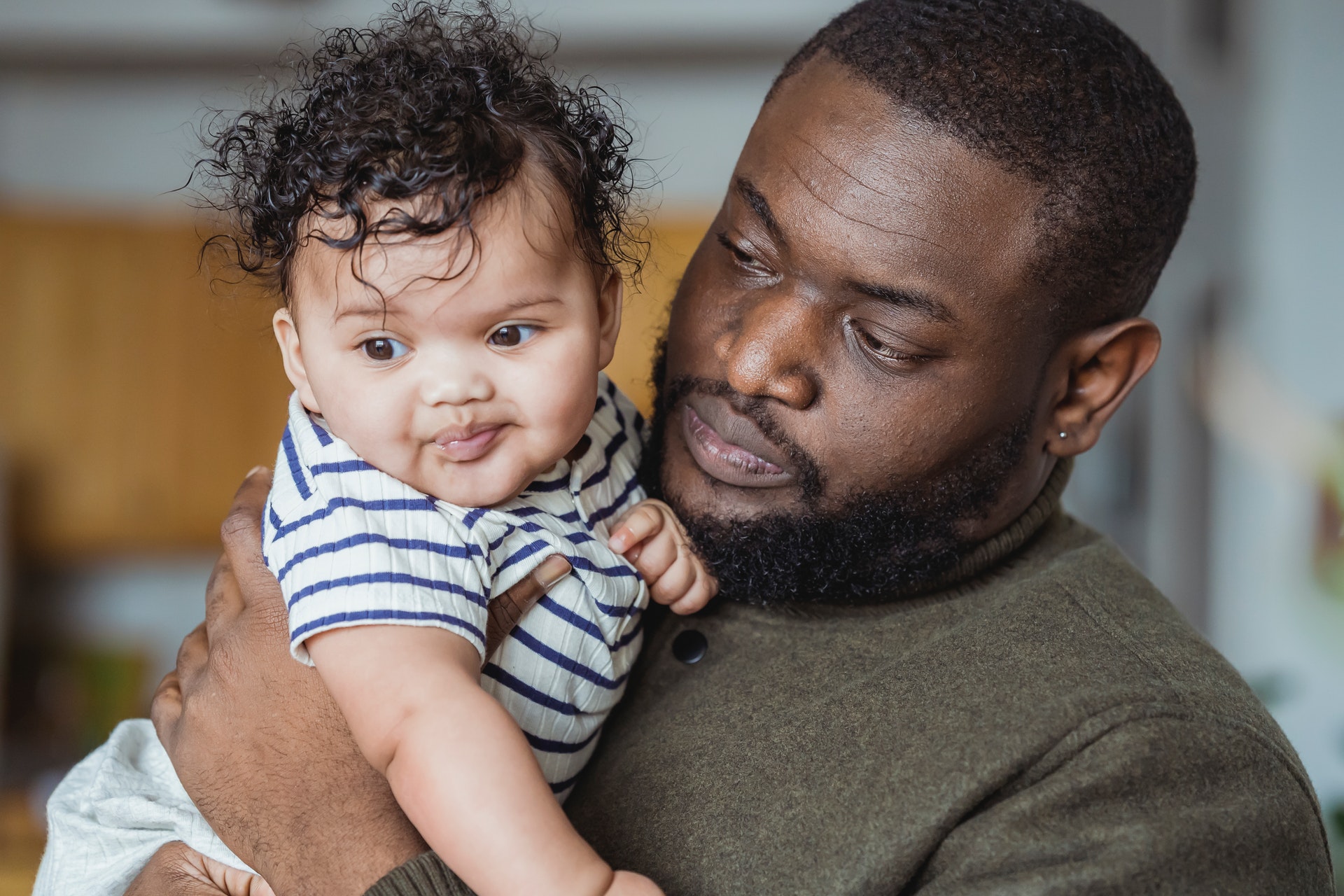Child Custody: 5 Things You Need to Know? | 7 minute read
Child custody is a particularly complex area of family law. When a couple get divorced or separate, child arrangements are easily one of the most cost challenging factors to amicably agree upon.
The term “custody” is relatively outdated in today’s language. Historically, “custody” was when the court gave full parental care to one parent, and there was no real room for negotiation or agreement. However, in 2014, the legal terminology of “custody” was updated to be more inclusive. Child custody now covers a larger area of child arrangements and works to accommodate all parties instead of favouring one parent.
Child arrangements typically come following a divorce or separation and depend on so many factors. Here are 5 facts you’ll need to know if you and your partner are separating and you need to make child arrangements.

1. There’s more than 1 type of child custody
Actually, there are 4 different types.
Physical Custody
Physical custody refers to where the child lives daily and with which parent. Like most forms of custody, physical child custody is either sole (for one parent) or joint (split between the two).
Joint physical custody is when parents split the child’s living arrangements between them. The court decides how much time the child will spend with each parent and will also decide on necessary child maintenance payments.
However, sole physical custody is slightly different. This is when one parent (the custodial parent) is responsible for housing the child. In this instance, you can organise visiting arrangements with the other parent during court proceedings.
Physical custody and legal custody are different things. Most parents will have joint legal custody of their child but may not necessarily have joint physical custody. Despite being a seemingly equal way to split child custody, regularly moving your child around could harm their wellbeing.
Legal Custody
Legal custody refers to a child’s overall upbringing. This covers things like education, medical treatments, religious decisions and many others.
Similarly to physical custody, legal custody is either sole or joint, so decisions are either made by one parent or shared by both.
Full Custody
Full custody is when one parent gets both full physical and full legal custody. The non-custodial partner will still have visitation rights, which the court will decide. The court will generally try to make a fair and equal split of custody. However, they may grant full custody if the other parent is:
1) Unfit to raise the child
2) In jail
3) Abusive to the other partner and/or child
4) Disabled or ill
The non-custodial parent may have to pay child maintenance fees to the parent will full custody.
Joint custody
Overall joint custody is when both parents have a say in the child’s upbringing and living situation. In the case of joint child custody, the parents may consider implementing an informal parenting plan or going to the court to have a child arrangement order made legally binding.
2. The court has a rigorous set of criteria that they will base their decision on
When you go to court to organise your child custody, the court will consider various criteria. These may include:
- The child’s own feelings and input
- The child’s specific needs
- If the child’s wellbeing is at risk
- The capability of each parent
- If there is evidence of domestic abuse
- The financial state of each parent
- How well each parent can provide for their child, not just financially, but also emotionally.
- The child’s age, background and gender
- Which parent has had the most input in the child’s life so far
- The mental and physical health of each parent, as well as the children.
There are many other factors involved in child custody, however, the ones above are the most common. The court will examine the overall case and will make a decision accordingly.
Are mothers more likely to get full custody than fathers?
In short, no, mother’s aren’t “more likely” to get full child custody.
It’s a common misconception that the court will base its decision on a favoured gender. While this may have been the case when custody was first implemented, simply favouring a parent because of their gender is discriminative, and the court takes this into consideration.
The truth is that the court will always make a fair and balanced decision in the child’s best interest, not the parents.
3. You may need a child arrangement order
When deciding on child custody arrangements, the best option will be to mediate between yourselves to avoid going to court hearings. You can decide where the child will live, how much time they’ll spend with each parent and how you can financially support your child together.
However, if you and your spouse cant reach an agreement, you can apply for a child arrangement order which will determine factors such as living arrangements, education and health care decisions. If you and your spouse can’t reach an agreement after mediation, you can apply to the court for a child arrangements order.
A child arrangement order typically takes 6-12 months to come into place. The court will also consider the child’s welfare and will look at criteria such as:
- The wishes and feelings of the child
- Their physical, emotional and educational needs
- How this change will affect the child’s behaviour
- Their age, sex, background
- Any potential harm the child has been through or may continue to be exposed to
- The capability of each parent and how suitable they are to take care of them.
4. The court might not split your child custody 50/50
It’s a common misconception that your child custody arrangements will be split equally. However, this may not be the case: just because you are both parents does not mean you will share custody equally.
If the relationship between parents is amicable, and both parents have equal capacity to care for the child, then you may be able to come to a 50/50 agreement, which can be reflected in your child arrangement order.
However, it is far more common that joint custody is split to reflect the needs of the child and the input of the parents. As with every element of custody, the needs of the child will always come first. This could mean that one parent has more input than the other, based on factors such as work schedules and financial capabilities.

4. Finally, the child’s needs will always come first
No matter the relationship between the parents, the court will always put the needs of the child first.
The whole point of child custody is to come to an equal agreement in regards to the child’s care, no matter the relationship between the parents.
There may be some situations where one parent believes they should have total custody of their child, based on their relationship with the other parent. However, the court will only favour one parent over the other if there has been domestic abuse involved in the relationship or if one parent is generally unfit to raise the child.
Other than this, the court’s decision will be entirely based on factors such as income, living arrangements and the personal capability of each parent.
Will i have to pay child maintenance fees?
The court may split your child custody in such a way that one parent will have to pay child maintenance. Your child maintenance payments will depend on your weekly income and how many children you have.
Nil
- The NIL bracket is for those who earn less than £7 in weekly income
- If you fall into the NIL bracket, you won’t have to pay any child maintenance
- If you fall into the NIL bracket, you will need to prove that you earn less than £7 a week
Flat
- The FLAT bracket is for those who earn between £7-£100 a week
- It also applies to those who are on benefits
- If you fall into the FLAT bracket, you will need to pay £7 a week in child maintenance fees
REDUCED
- The REDUCED bracket is for those who earn between £100.01 and £199.99 a week
- If this applies to you, you will need to use a child maintenance calculator to see how much you need to pay
- See the GOV website for more information.
Basic
- The BASIC bracket is for those who earn between £200 and £3,000 in weekly wages.
- If this applies to you, you will need to use a child maintenance calculator to see how much you need to pay
- See the GOV website for more information
If you earn more than £3,000 a week, you will need to apply to the court for a “Child Maintenance Top-Up Order.”
When do I need a lawyer?
A lawyer may be essential for your child custody arrangements. Having the correct legal representation will ensure your wishes and needs are fully outlined with no room for error. A lawyer will help you resolve issues such as:
- Living arrangements
- Financial arrangements
- Disagreements on the child’s upbringing.
Our partner child custody lawyers will work with you and you to achieve an outcome that meets your needs, whilst always putting the child first.
we can help you today
Our friendly team are on hand to connect you with the best possible lawyer for your child custody.
SPEAK TO OUR TEAM ON 020 3795 9020
Frequently asked questions about child custody
will being LGBT affect my child custody rights?
Your custody rights won’t be affected by your sexual orientation. As with heterosexual couples, the court will base its decision on the child’s best interest. To choose one parent over the other based on gender, gender identity or sexual orientation is discriminative.
Who gets custody of a child if a parent dies?
When one parent dies, the other can obtain custody, even if the parents are no longer together. However, if the surviving parent poses a danger to the child’s wellbeing, this may not be the case.
Who gets child benefits in shared custody?
Child benefits will go to the child’s primary caregiver, even if the parents have joint child custody. You cannot split child benefits for one child between more than one parent. However, if there is more than one child, the parents can choose to split payments.
How do I arrange my child custody?
Arranging your child custody will depend on many factors, such as whether you agree or disagree. If you disagree, you can start by family mediation to see if you can come to an arrangement. Following this, you will need to apply to the courts for a child arrangement order, where you can decide on aspects such as living arrangements.
Can you file for child custody when you're married?
You can file for child custody when you’re married. However, child arrangements are only necessary in the event of a relationship breakdown or an inability to continue caring for your child. For example, some parents will be separated or going through the divorce process but won’t yet be divorced.



0 Comments